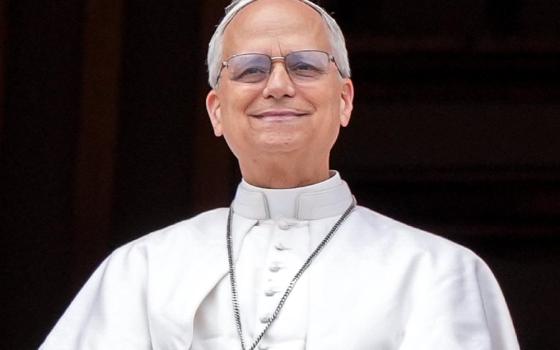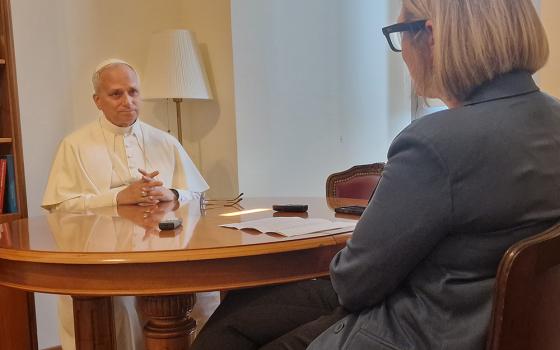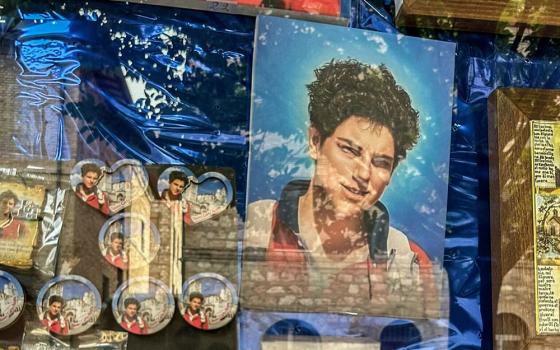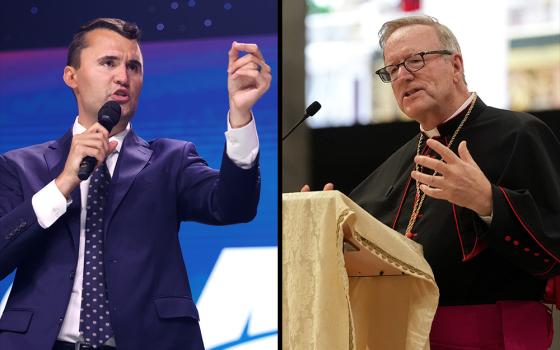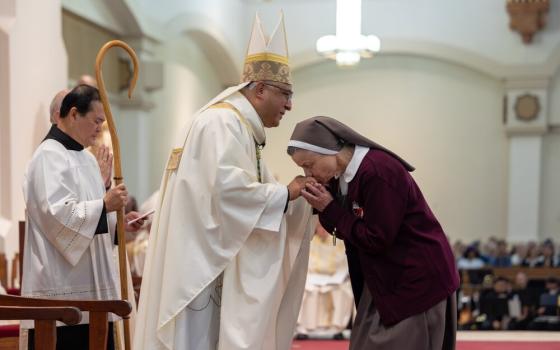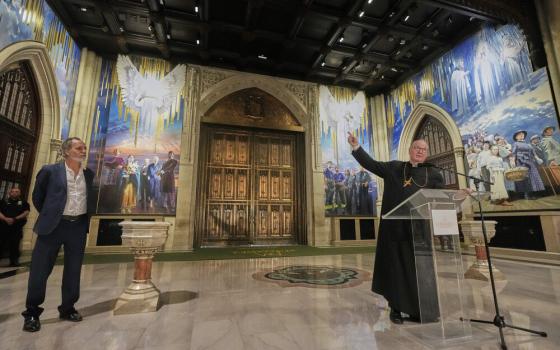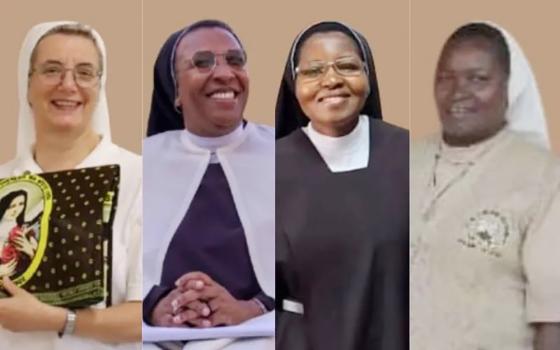
In her new book, Struck Down, Not Destroyed: Keeping the Faith as a Vatican Reporter, America magazine's Colleen Dulle opens up about her own disillusionment with the institutional church throughout her tenure as a reporter – and why and how she's stayed Catholic despite the often devastating disappointments. (Chris Geerdes)
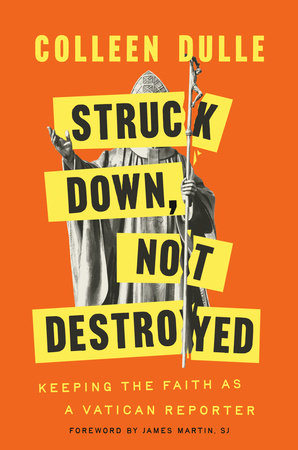
In her new book, Struck Down, Not Destroyed: Keeping the Faith as a Vatican Reporter, America magazine's Colleen Dulle opens up about her own disillusionment with the institutional church throughout her tenure as a reporter — and why and how she has stayed Catholic despite the often devastating disappointments. In an email interview with NCR's Olivia Bardo, Dulle peels back the curtain on the struggle between her work and her faith.
This interview has been edited and condensed for length and clarity.
NCR: Some argue that a journalist should never reveal their personal feelings on the subject they cover. In your book, you make a point of keeping your frustrations with the institution at the forefront. Did you wrestle with that decision?
Dulle: There is a hunger not only for an explanation of the news — I'm a big believer in explainer journalism — but also for an answer to the question, "What does this story mean for my life and understanding of the world?" We've seen the journalism industry shifting toward personality-driven media like TikTok and podcasts, both of which I've embraced in my coverage. And I've felt encouraged to move in that direction working at America, since it's a magazine that bills itself as a journal of opinion.
I'm not proscriptive, and I would never hold myself up as an example to follow, but as a journalist I do think that personal stories help us answer nagging questions.
Some might read your book and conclude the Catholic Church cannot be rectified and must be abandoned. Why do you stay?
I think I keep showing up in church because my relationship with God feels the strongest when I'm physically in a room where the Eucharist is present; it's a deeply held belief I can't shake, even though I believe that God is everywhere. So even in the darkest days of covering the 2018 wave of the abuse scandal, for example, I found myself going back to a chapel just to yell at God. And it helped.
I know this faith is a grace and a privilege that does not come easily to many, many other people. At times I feel almost guilty about it. But I think everyone is on a search for truth and meaning, and there is value in sharing our stories. So this book is what I feel I personally can contribute to that conversation.
Advertisement
How do you distinguish between the schisms and scandals of the institution with the truth of the faith itself?
I had a moment during that "summer of shame" in 2018 where I was in Mass, and the first reading was "Woe to the shepherds who are destroying and scattering the sheep of my pasture" and the responsorial psalm was "The Lord is my shepherd." When I am most fed up with the scandals and institutional failures, I return to that moment, because it felt like a promise: The shepherds who destroy the sheep — and "destroy" is such an accurate word for what child sexual abuse does to a person — will face God's wrath. I take consolation in that.
The less dramatic answer is that the church, including its hierarchy, is made up of people; and that none of us are 100% good or 100% evil. We are all in between.
At the core are the teachings that I teach my 2-year-old, whom I was pregnant with while I was writing the book. Things like: God created us, God loves us the way I love my child and God wants to spend eternity with us.
You conclude the book by stating that the future of the Catholic institution is complicated, but community can and must be part of the solution. Where does this conviction come from?
This was at the heart of Pope Francis' synodal reform process. The involvement of the community in church decisions has the potential to rebuild institutional credibility and better serve its mission. Throughout the book, I learn to grapple with my disappointments and struggles in community. It's the community that really gets me through: my Jesuit spiritual director on a retreat, the parishes that welcomed me after I felt rejected, the coworkers and friends who sat with me in moments of grief. I really have come to believe that healing comes in community.
My favorite book is Toni Morrison's Beloved. After years of isolation in a haunted house that her neighbors avoided and her children fled, Sethe is healed when her neighbors gather around her house and sing, excising the ghost that's haunting her. Her healing comes in community.
I hope my book can give people who are suffering some small sense of a healing community.

